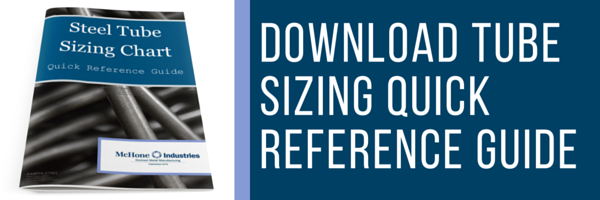
What is mild steel? It's basically a slang term for low-carbon steel tubing. Any vendor in the metal manufacturing industry should understand what you're looking for when you request this material.
What's so great about mild steel tubing?
It provides plenty of strength, weldability, and durability without the excessive costs of stainless steel tubing.
However, if your application is highly corrosive, DO NOT request mild steel.
Corrosive environments (lots of moisture, salt, or both) require stainless steel or galvanized steel. These metals are fortified against corrosion in their alloys or finishes, making the final product more reliable and affordable in the long run.
How Can Mild Steel Tubing Make Your Design a Reality?
Every engineer wants to design the perfect product on the first try. However, there are a number of factors conspiring against this dream. Costs and manufacturability are the two biggest roadblocks.
Mild steel can knock out both of those issues at once.

Cost
Mild steel is one of the most affordable metals, and it's a perfectly viable material for many applications. Mild steel costs a fraction of stainless steel - stainless steel can cost anywhere from 4-6x as much for the same weight.
Mild steel can also be welded and machined much more easily than stainless steels. This keeps manufacturing and fabrication costs low.
So, if your application isn't highly corrosive, specifying mild steel tubing could get your product one step closer to becoming reality.
MANUFACTURABILITY
As mentioned above, mild steel is very easy to weld and otherwise manufacture/fabricate.
Welding: Hardenability is the biggest problem when welding a metal. Hardenability is affected by the carbon equivalent in the metal (amount of carbon and other alloying metals). The higher the carbon equivalent, the more difficult the metal is to weld.
High hardenability can lead to hydrogen cracking. So, welding stainless and high carbon steels requires more expertise and care (and therefore, higher manpower costs) and can create more waste with damaged product.
Mild steel requires less expertise and can be welded much more quickly. It produces less waste, and you can employ a less experienced welder to get the job done.
Ductility: Mild steel is highly ductile, making it easy to fabricate. Mild steel tubing can be formed, shaped, and cut relatively easily. This puts less stress on machinery, and allows for more efficient processing.
Requesting mild steel will keep machining costs low, and make it easier for your manufacturer to produce the product you designed.


